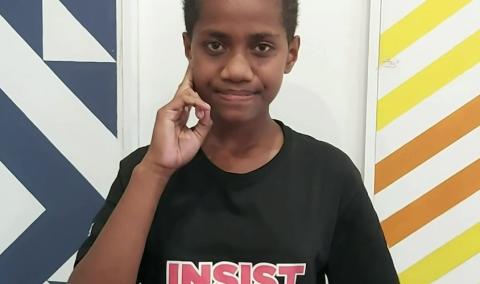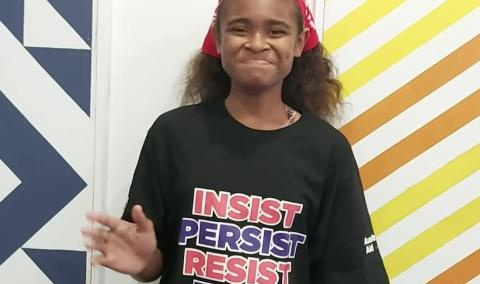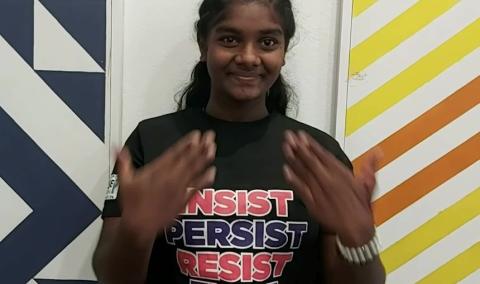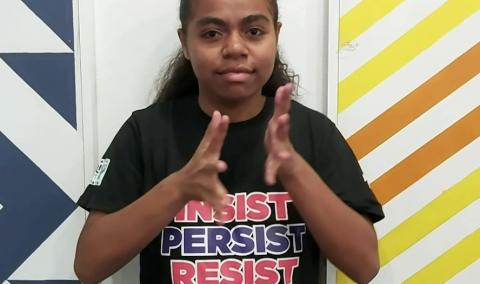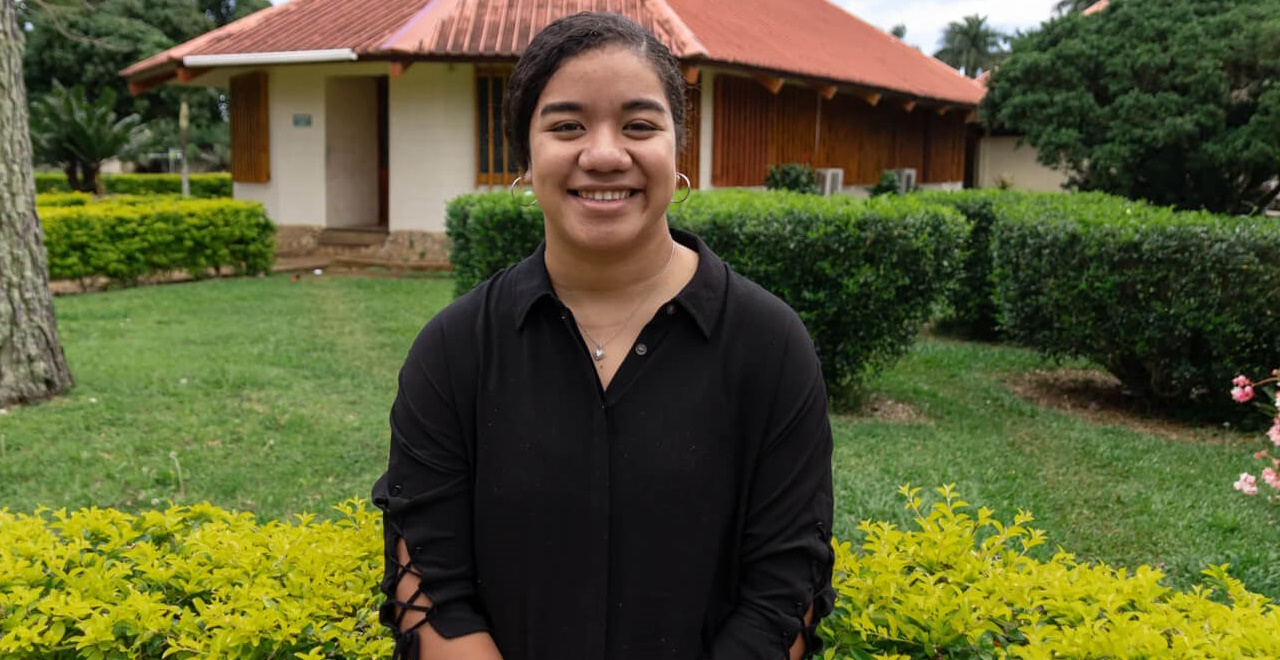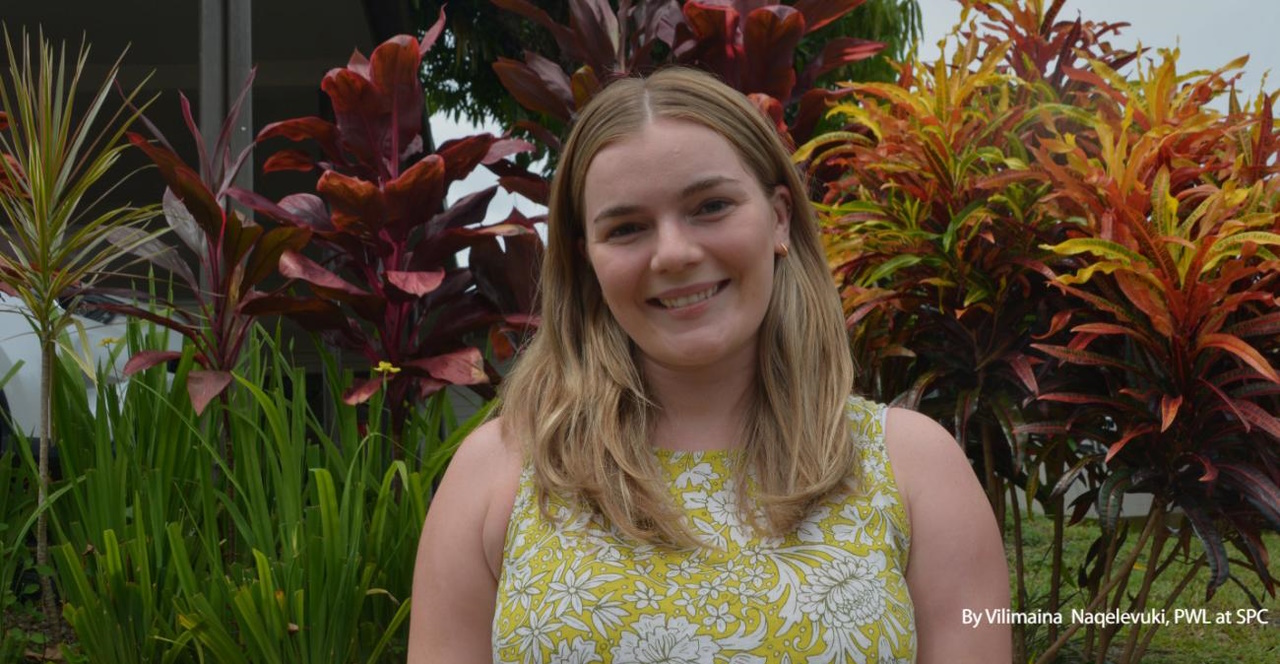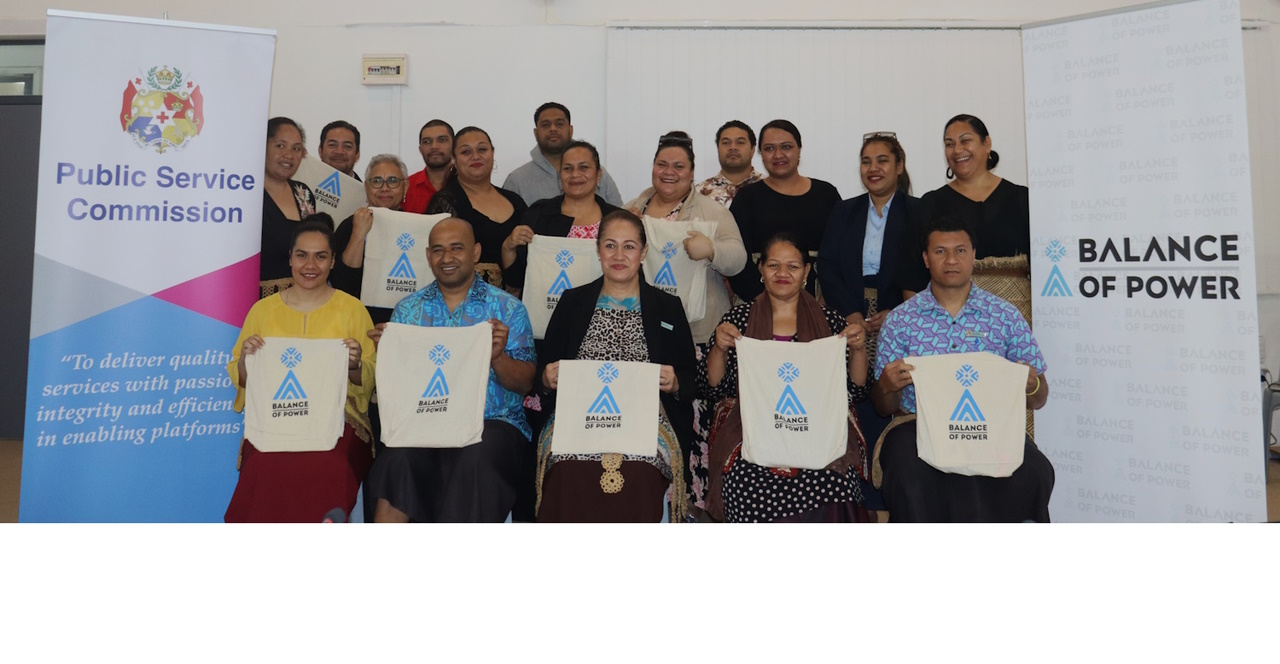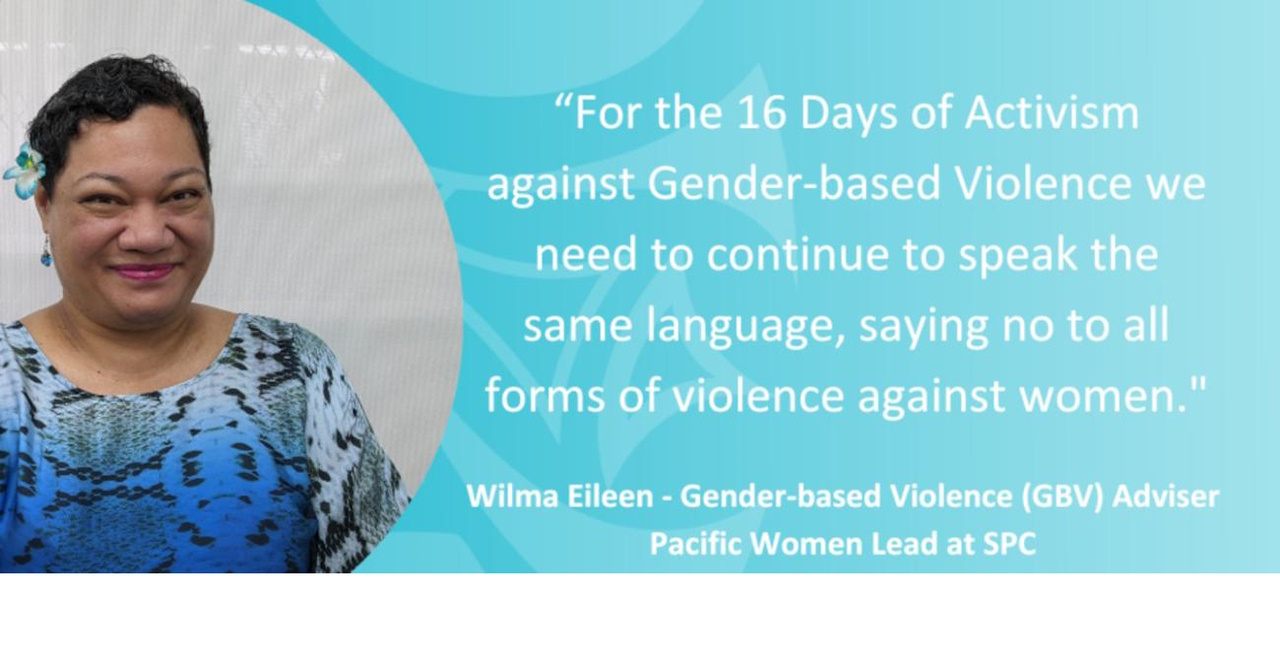International Day of Sign Language important for FWRM Grow.Inspire.Relate.Lead.Succeed – GIRLS programme
“Deaf girls can do anything,” signs Vasiti of the Fiji Women’s Rights Movement (FWRM) Grow. Inspire. Relate. Lead. Succeed (GIRLS) Programme.
She is one of the many girls in 6 Pacific Island countries who have been reached by projects supported by Pacific Girl since it began in 2019. Through partner-led activities, girls – including girls with disabilities – are being supported to advance their rights and opportunities. The FWRM implements GIRLS ARISE, a program working with girls aged 10–12 years to build their life skills and confidence.
FWRM has since extended its GIRLS ARISE program to reach deaf girls through a partnership with the Fiji Association of the Deaf (FAD), over time extending their collaboration to other institutions, the Gospel School of the Deaf. FWRM’s approach aligns to broad principles of engagement with Deaf girls as part of the Deaf community – a culturally distinct group that specifically identifies as ‘Deaf’ (with a capital D, i.e., “Deaf girls”) rather than the broader definition of people with hearing impairment.
Sign language is a core element of Deaf culture, with variations across the Pacific and, more broadly, the world. Therefore, connecting with the appropriate stakeholders, such as the Deaf community and its representative bodies, is vital to tailoring development initiatives that respond to their different needs, identities and language.
“We partnered with FAD to sensitise our work, particularly the toolkit,” explained Emeli Anise, FWRM’s Team Leader for the Intergenerational Women in Leadership Program (IWLP). “FAD helped us design the FWRM GIRLS Program Deaf Girls Engagement Strategy and through them, we identified a Deaf consultant to help us sensitise our work, specifically the toolkit.”
This collaboration is also reflected in a cross-sensitisation Memorandum of Understanding (MoU) with FAD. The 2 organisations have been sharing their respective expertise in gender equality and deaf inclusion since 2019, including FWRM staff learning Fiji Sign Language (FJSL).
“The toolkit consultant also developed a glossary for jargon we often use – like feminism and intersectionality – because there was no [FJSL] sign for it,” added Ms. Anise. “Right now, the glossary is being reviewed by FAD” and “the consultant has also helped our program content to be deaf girl friendly and linked us up with organisations that specifically work with Deaf children like Gospel School for the Deaf and Hilton Special School.”
Some of this work has been implemented by focusing on a core cohort of 10 Deaf girls, but engagement has also extended to a greater number of Deaf girls through platforms and events like the Girls Forum. This year, Deaf girls from both the core cohort as well as additional girls attending Gospel School of the Deaf attended the second Girls Forum – making the safe space for girls to amplify their voice and guide the advocacy priorities of the GIRLS program to be more inclusive. This year, FWRM is sharing a series of messages from their core cohort of Deaf girls in a video on social media in commemoration of the International Day of Sign Languages. In the video girls highlight their rights, needs and priorities as well as encourage others to learn. “I need to have sign language in school,” highlighted Silina. “Sign language is fun,” added Shakshi. “Learn sign language. Respect my sign language.” According to Ms. Anise, finalising the toolkit and the partnerships with FAD and Gospel School of the Deaf are just the first steps to embed an inclusive approach to FWRM’s adolescent girl programming
